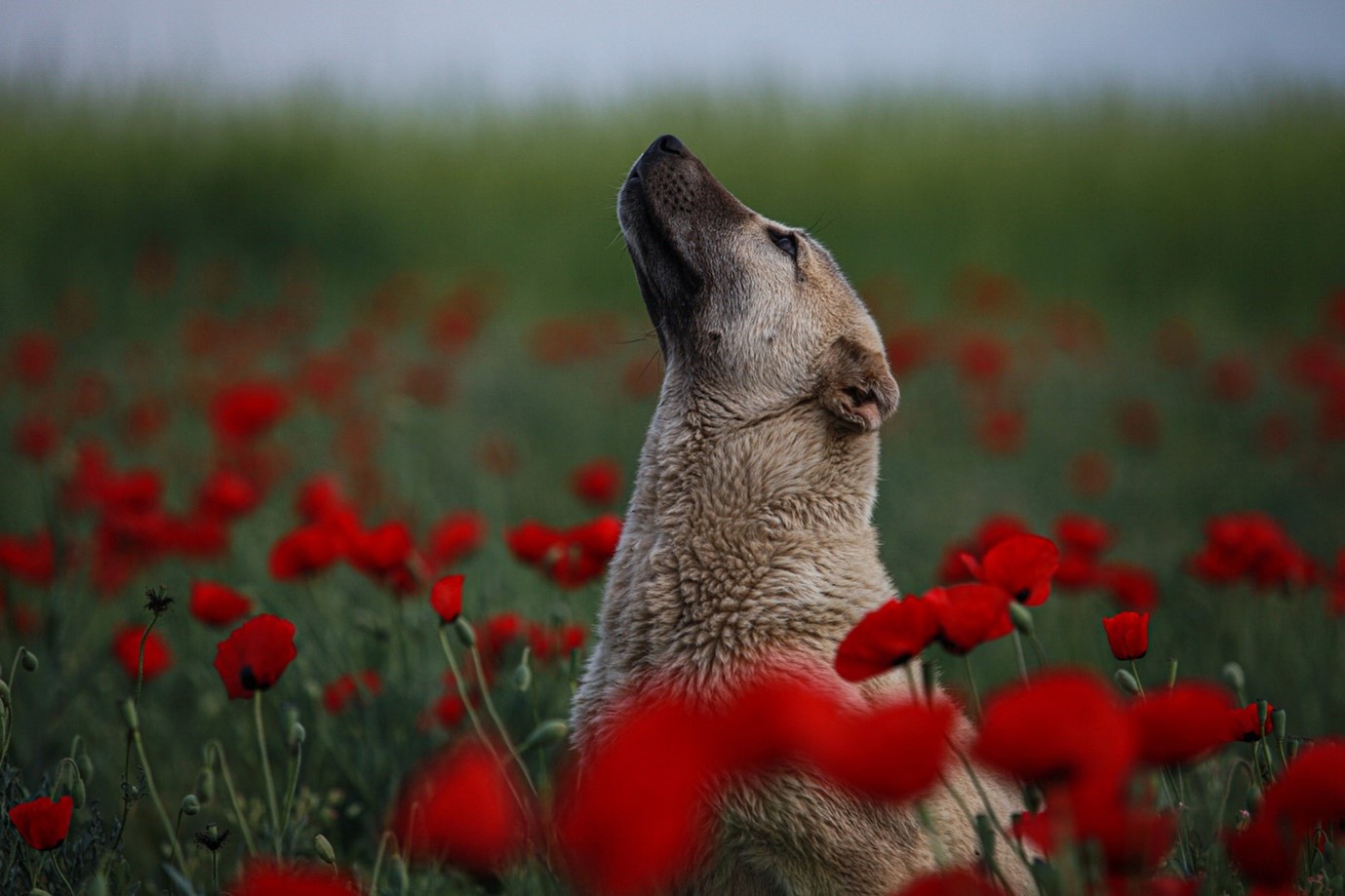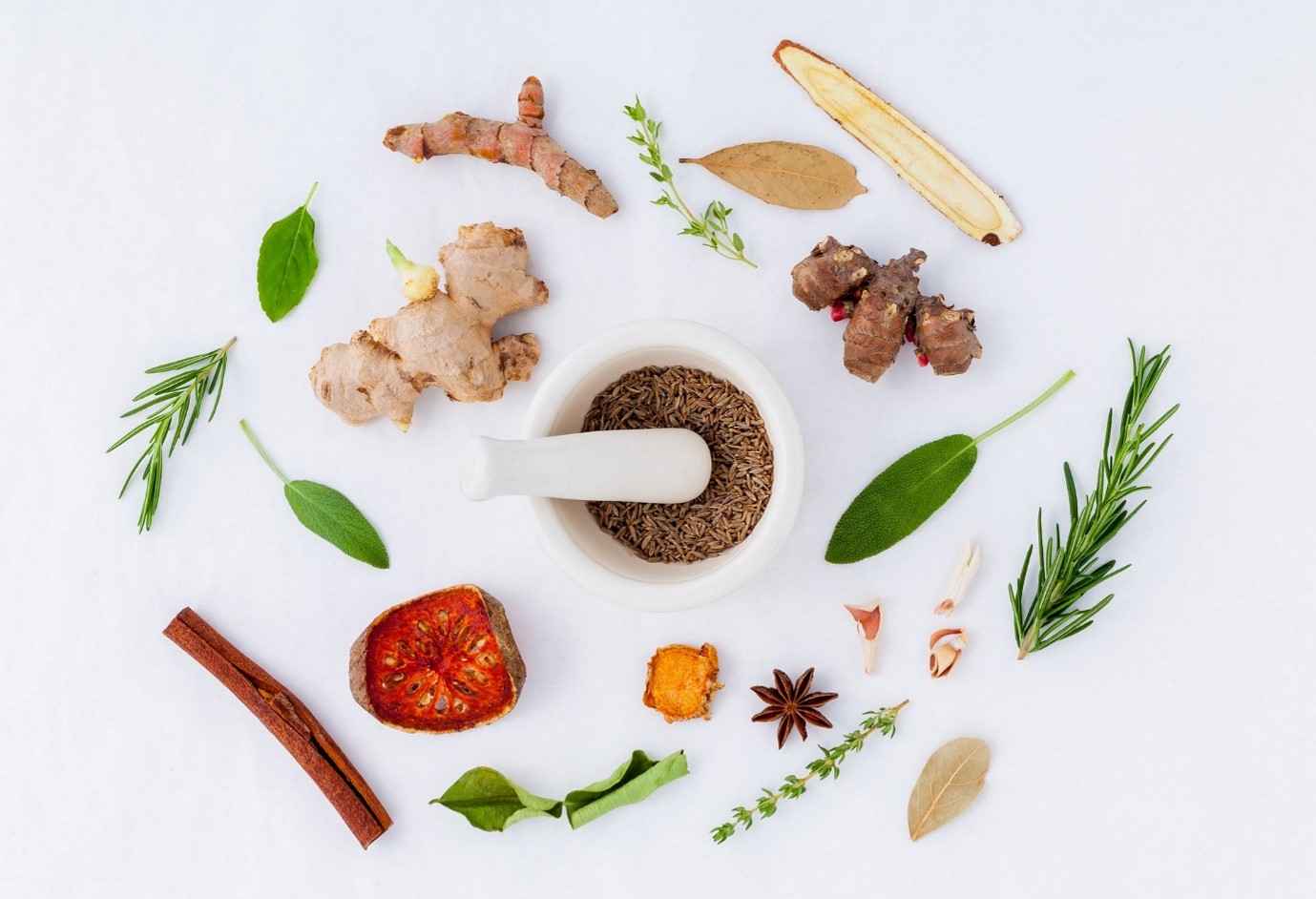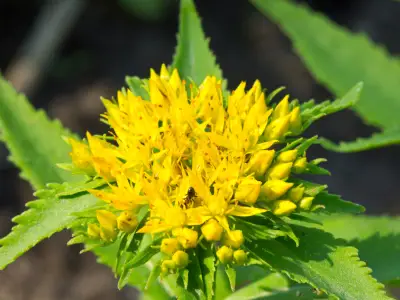Our pets are treasured members of the family, and we work hard to keep them fit and healthy. As the holistic approach to health continues to gain momentum, more of us are turning to the likes of herbal remedies to keep our animals in peak condition. As a diligent pet owner, you've probably searched up what herbs are good for dogs, only to be greeted by a range of conflicting information.
It's easy to read articles online and become too nervous to use herbs with your pets, but actually, your animal appears to be pre-programmed to perform their own herbal healing! Here, you can learn about the innate plant wisdom held by pets and explore the safest way to work with herbs at home.

Ancient Wisdom
Have you ever observed your dog eating plants out on a walk or your cat taking great interest in certain flowers in your garden, rubbing themselves across them repeatedly? There is a fascinating school of thought that animals hold an innate wisdom about the health properties of plants. Animals in the wild have been observed choosing plants that address health issues, from chimpanzees eating rough leaves that physically remove intestinal parasites to bees building their hives with antiseptic tree resin to guard against infections in the colony.
Studies have shown an incredible accuracy for dosing when animals self-medicate in the wild, with plants that could easily cause toxicity being consumed at therapeutic but safe doses. We even see animals use plants to protect their offspring, such as the Monarch butterfly laying her eggs on milkweed plants when she has a parasitic infection, as the chemicals in this plant will help to kill parasites passed on to her young.
Domesticated animals, due to breeding and environmental changes, may not be quite as good as their wild counterparts at selecting healing plants from their habitats, but dog owners may well have observed their pet eating grass or selecting emetic plants such as Dog's Mercury to induce vomiting – an example of the animal using nature to purge. And cat owners may have enjoyed watching their pets react to catnip, a herb that has a psychotropic effect on our feline friends.
We know for sure that animals self-medicate most effectively within their own natural habitat. Your cat, dog or hamster is not living in the environment that they evolved in and accidental poisoning with tropical house plants demonstrates that our furry friends can get things wrong when it comes to choosing which plant to nibble on. This is something you can keep in mind when choosing herbs for your pet. Although there are exceptions to the rule, generally, tropical plants are more likely to pose a risk to most common (non-tropical) pets because they simply didn't evolve around these plants.
How Do I Know Which Herbs are Safe?
It's important that when you're researching herbs for your pet, you're specific about the animal. Safe herbs for dogsmay not be safe for cats, for example. You also cannot rely on herbal compatibility with humans when choosing herbs for your pet. The common and popular herbal remedy, German Chamomile, is safe for most humans but is unsuitable for pets including cats. Garlic, which has become a popular cardiovascular and immune system tonic for humans, can cause a type of anaemia in animals when given in high doses. Do you grow marjoram or oregano in your garden or use them in your cooking? Both can upset a cat's digestive system.
You may see a common theme between these herbs. Each is highly scented and just like the tropical plant rule, it's a great idea to do plenty of research before using an aromatic plant with your animal. Aromatic plants contain chemicals known as volatile oils, and these can be very potent; therefore, caution is needed – especially if your pet is pregnant.
If there's a culinary herb you're growing and would like to try with your pet, always do your research. For example, can dogs eat rosemary, given that this is an aromatic herb? They actually can in small quantities, but you should never assume that just because we use a herb for culinary purposes, it is safe for your pet. Is rosemary safe for cats? Again, in small quantities, it is, and yet other herbs from the same family can irritate the feline digestion at higher doses, including some species of mint and lavender.

Luckily for pet owners, there are a collection of herbs that have a great safety record for use with animals, including:
- Alfalfa
- Ashwagandha
- Bilberry
- Burdock root
- Chickweed
- Couch grass
- Echinacea
- Ginkgo biloba
- Hawthorn
- Marigold
- Milk thistle
- Nettle
- Oats
- Raspberry leaf
- Rose
- Slippery elm
The list above represents just a small number of herbs that can safely be used at home to help support your pet's health, but did you know it is illegal for anyone other than a vet to prescribe herbal remedies to an animal? So, although you are free to buy herbs and use them with your own pets at home, you can't offer a service diagnosing someone else's animal and then creating herbal remedies for them.
Five Healing Herbs for Helping Your Pet

If you'd like to grow your confidence working with herbs at home for your pet, the following five herbs are the perfect starter collection and cover a wide range of common conditions that pet owners encounter.
- Alfalfa – a herb so safe it is commonly used as a supplement for rabbits, rodents, cats, dogs and horses. As a pet owner, you can feel safe using this as a herbal remedy. This bland-tasting herb has anti-inflammatory properties, and this makes it a useful remedy for older pets with arthritis. It is packed with nutrients, so animals of all ages can benefit from alfalfa's nutritive qualities, supportimg their immune system and general health.
- Ashwagandha – a herb native to the East, many animals respond well to Ashwagandha's ability to soothe stress and anxiety when used long term. If you have a cat or dog that suffers from the likes of separation anxiety or is highly reactive to other animals, you could try using this herb alongside other techniques recommended by your vet or behaviourist. This root can also help to strengthen the immune system, which is useful if your pet has battled a serious illness, had surgery or is simply entering its senior years, where the ability to fight off disease naturally declines.
- Couch Grass – a grass that you can easily go and forage from your own garden or local fields and meadows. This is one of the herbs that you may well have watched your own pet graze on. Couch grass is anti-inflammatory and soothing and can be used for simple digestive upsets and specifically for urinary tract infections, where its diuretic action is also helpful. There is some research that it can also support an animal's digestion.
- Marigold – if you're looking for a healing and antiseptic herb to use topically on your pet for sore paws or scratches and scraps after cat fights, Marigold is the ideal choice. A herb that reduces inflammation as well as easing pain, and combatting microbes, you can also use Marigold as an internal remedy. Used this way, it can help restore the integrity of the gut following parasitic infections and the stomach if there has been ulceration that has been treated successfully by a vet.
- Slippery Elm – for those days when your pet is feeling a little under the weather, perhaps after eating something it shouldn't have or exhausting itself with too much exercise, a restorative nutritive herb like Slippery Elm is an excellent remedy to call upon. Slippery Elm is full of compounds known as mucilages that coat, protect and soothe the digestive tract – just in case whatever your pet pulled from the bin has left the intestines a little irritated. It's also nutritious, helping to offer nourishment if your pet is off their food for the day. The softening nature of the mucilages makes Slippery Elm helpful if your pet has constipation. Like marigold, you can also use this remedy to soothe and heal minor cuts and grazes.
If you’d like to learn more, our Herbalism for Animals Diploma Course is currently available for just £29 for a limited time (reduced from £127).





